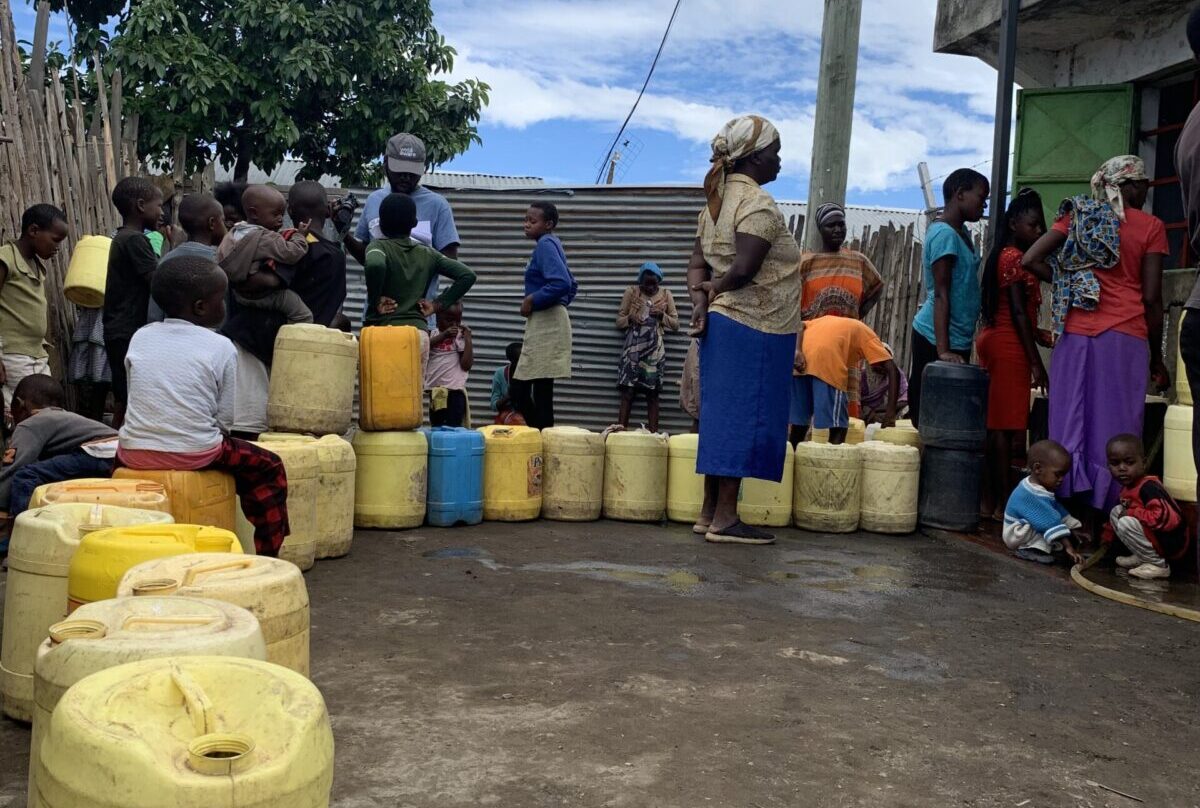May 11, 2023
How Reliable Access to Clean Water Drives Economic Development
Access to clean water is a staggering problem globally. Nearly one third of the world’s population lacks access to safe drinking water, three billion people lack access to proper hand-washing facilities, and over four billion people do not have adequate, safe sanitation services. Despite efforts by NGOs, governments, and local communities for decades, the water aid industry has largely failed to provide reliable, long-lasting clean water solutions that enable communities and their economies to thrive. The water crisis is not just a public health crisis, it’s also an economic crisis.
How Clean Water Access Affects the Economy
 Clean water scarcity presents one of the greatest risks to economic development. The World Bank estimates that globally, each year $260 billion is lost due to lack of access to clean water. According to a UN report, three out of four jobs in the global workforce are moderately to heavily dependent on water. Therefore, when there is a shortage of or problems with access to water, it limits the possibilities for economic growth.
Clean water scarcity presents one of the greatest risks to economic development. The World Bank estimates that globally, each year $260 billion is lost due to lack of access to clean water. According to a UN report, three out of four jobs in the global workforce are moderately to heavily dependent on water. Therefore, when there is a shortage of or problems with access to water, it limits the possibilities for economic growth.
Communities without reliable, clean water face multiple problems such as stunted growth, increased disease rates, reduced education rates, agricultural and developmental failures, and food insecurity.
Water scarcity is not only a burden, but it becomes a barrier to economic equality.
Climate change and the increase in pollution have only exacerbated water stress in communities around the globe. The lack of water resources and solutions hinder economic growth, limiting the very resources needed to develop.
The Impact of Sustainable Clean Water Solutions
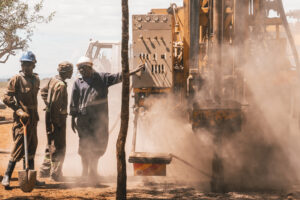
To address the water crisis, it is essential to fund, implement, and maintain clean water systems that are sustainable for the long-term. Well-managed water resources and solutions positively impact productivity, reduce healthcare costs, and dramatically increase work and school attendance, contributing to the overall economic health of a community. In fact, sustainable clean water solutions bring an estimated return-on-investment of 21 times their cost.
How Well Aware Drives Development
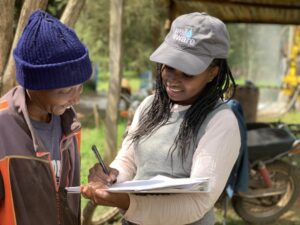
At Well Aware, our mission goes beyond drilling water wells. We understand that in order for a water project to be successful, we need to be on the ground, collaborating with partner community members who know their communities better than anyone. We work closely with our partner communities to ensure that every system we build is customized to solve the unique challenges of the community, and that they have the training, resources, and support (through our Well Beyond app) they need to manage their clean water systems, driving economic development for generations.
The Impact of Clean Water in Action
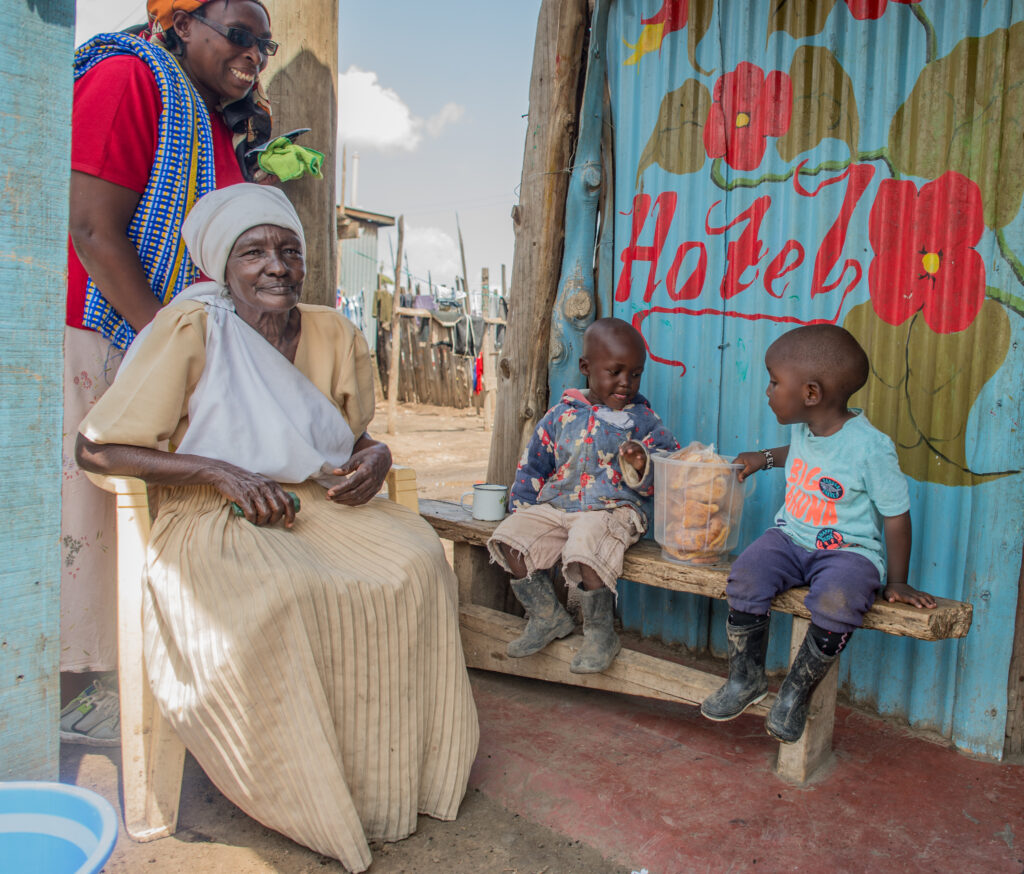
Nearly four years ago, we broke ground on a clean water system in New Canaan, Kenya, a community severely impacted by the water crisis. Prior to implementation, New Canaan was one of the biggest IDP (internally displaced people) camps in the country following the 2007 general elections.
When we first met this community, their economy was suffering from a high percentage of unemployment, and due to a lack of funds, many young adults were stranded at home because they could not afford college or high school. Additionally, after the violent clashes of the elections, many women lost their husbands, leaving many mothers to take care of their homes single-handedly. In other families, only the very young children and grandparents survived.
The community mostly relied on the support from the government and other institutions for food and other basic resources, but through all this the New Canaan community was able to come together and get community land within the locality. From here the partnership between New Canaan and Well Aware began.
With the implementation of a deep borehole well, life started to turn around with clean water.
Currently, the community has a water kiosk that they run where all funds pulled from it go into the upkeep and maintenance of the system and the residual finances are used to support local community initiatives such as paying school fees for vulnerable students, supporting the elderly, and running a local self-help group that focuses on women empowerment.
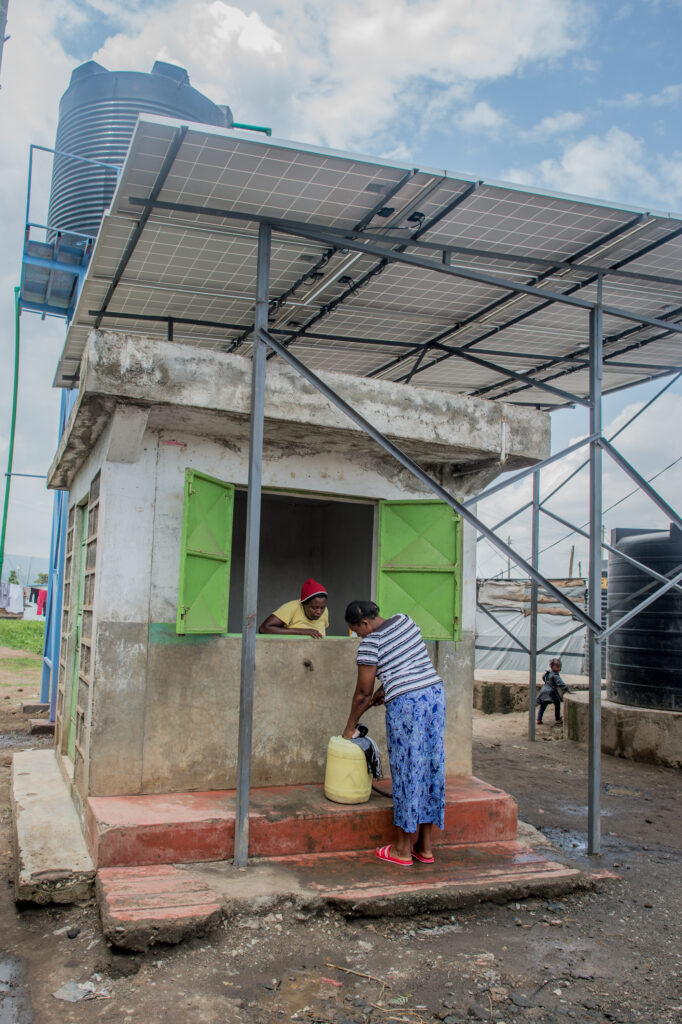
At the water kiosk there are several businesses that have recently sprouted up- there is a vendor selling water jerry cans, there’s a kiosk supplying fresh farm produce. All this and more are directly related to the water system there in the community. With the availability of clean drinking water, they are able to use the spare time they once used searching for water to empower themselves economically.
Women who used to carry water on their backs for long distances are now able to run small businesses in the community to support their families, men who had bought bodabodas to help fetch water from far off places are now using these bodabodas to earn extra money for their families, and businesses have flourished in the community as there’s time to work on individual projects rather than collect water.
The economic development of New Canaan has grown by leaps and bounds since the establishment of the water system, businesses have grown, and new income generating ventures have blossomed in the community both as a direct and indirect effect of the water system.
At Well Aware, we believe that everyone deserves the right to clean water, and together, we have the power to create a world where everyone has access to it. Learn more about our current water projects and how our organization is working to drive economic development across East Africa.
